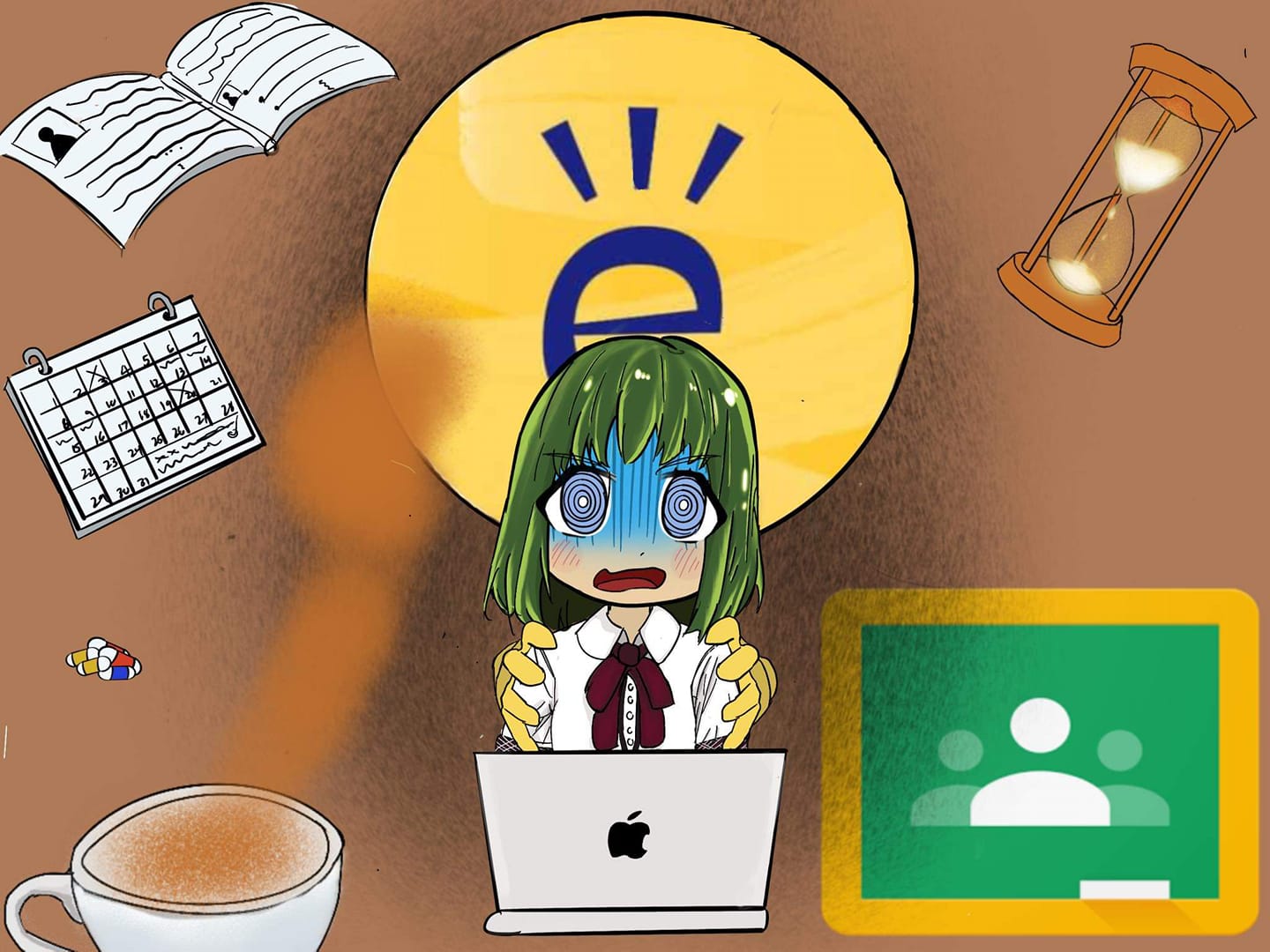By Patricia Gaille Tiu
Art by Justin Wingkee
Given present situations and the subsequent halt to traditional on-campus education, it is no surprise that educational institutions have resorted to virtual means of learning and communication. As virtual learning is not a novel development, it presents itself as the appropriate alternative in terms of education due to its unique characteristics and features.
Virtual learning certainly lives up to its advantages by providing flexibility in learning. If we happen to be confused or stuck in a certain topic, the availability of the world wide web could only supply us with what we do not understand. Our learning is centered on how we manage our time, and is catered to how we are able to learn, whether it is through visual or guided means.
The conveniences of online education also allow students to utilize the time usually spent waiting in traffic, to no longer carry the weights of schoolbooks, and to stay within the comfort of our homes. When we only need to be present in an online class, the utmost necessities would be a good internet connection, a functional device, and an eager mind. By going digital, we also take part in the considerable decrease in carbon footprint normally caused by the pollution from transportation, the number of papers used, and other non-environmentally friendly means.
Opportunities are where virtual learning may be at an impasse. While programs and community activities that are normally conducted in school are restricted to online broadcasting, we can also acknowledge that the shift to online learning has allowed us a wider perspective of the digital space. It allows us to explore other means of education, and demands us to be more technologically adept in our tasks.
Ultimately, safety is the objective. And as online education allows us to pursue learning even in harsh environments such as the pandemic, it is certainly ideal in theory. However, in practice, there are bound to be setbacks.
As we consider all these benefits to online learning, we must also understand how some restrictions can truly affect our education, and how entirely difficult the online setup may be for certain individuals. Stress levels are inclined to skyrocket due to personal factors that come along with the pandemic; power interruptions are unavoidable, and frustrations from adapting to online learning are to be expected. As long as regulations are set in place to cater to these concerns, perhaps, the online setup would be a significantly better experience for each and every learner.
Pursuing a virtual education allows us to be productive while social distancing in the meantime. While there are many hindrances involved, one may agree that, with respect to the different experiences of different individuals, it is considerably better to be equipped with education opportunities rather than none at all.

